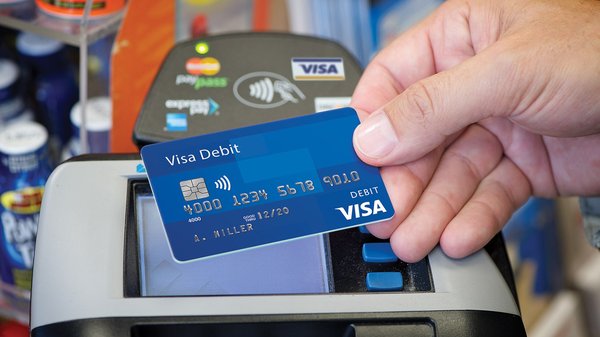Google is by far the most widely used search engine in the world. It is also the parent company of some of the most popular tools and platforms worldwide, including YouTube, Gmail, and the Android mobile operating system.
In this article, we'll dive into the ownership structure of Google, its largest investors, and how you can put your money to work in Google as an investor.
Who is the owner?
Who is the owner of Google?
The short answer is that Google is a subsidiary of Alphabet. Alphabet is a publicly traded company that is owned by its shareholders.
For the longer version, Google is actually a broad collection of businesses, which is itself split into two segments -- Google Services and Google Cloud.
Google Services includes most of the consumer-facing businesses. It includes the dominant Google Search platform, as well as YouTube, Google Play, Android, Chrome, Gmail, Maps, Waze, and many others. On the other hand, Google Cloud includes the cloud infrastructure business that competes with Amazon Web Services and Microsoft Azure.
In addition to the Google subsidiaries, Alphabet has another business segment called Other Bets, which includes several early-stage startups the company has acquired over the years. The most well-known example is the Waymo self-driving vehicle startup, but there are several others.
Largest shareholders
Who are the largest shareholders?
As of May 2024, there were about 12.48 billion outstanding shares of Alphabet stock. Here is a rundown of the largest (known) individual and institutional shareholders.
Individuals
Before we dive into the top individual shareholders of Alphabet stock, it’s important to mention that there are some limitations. Unless someone owns more than 5% of a certain class of a company’s stock or they serve as a company executive or board member, there is no requirement for them to disclose their investment to the public. We also don't have public information about the Class C share holdings of any of these individuals (if any) since they don’t come with voting rights. With that in mind, here are the five largest individual shareholders listed on Alphabet's most recent proxy filing.
- Larry Page owns 389,051,160 shares of Alphabet, representing a 3.1% stake in the business. Page co-founded Google and formerly served as the company's CEO.
- Sergey Brin owns 363,474,028 shares of the company, representing a 2.9% stake in the business. Brin co-founded Google with Page and formerly served as the company's president.
- Eric Schmidt owns 60,994,606 shares, a 0.5% stake in the business. Schmidt served as CEO of Google from 2001 to 2011 and as the executive chairman until 2017.
- L. John Doerr owns 24,290,420 shares, a 0.2% stake in Alphabet. Doerr is a venture capitalist who was one of the early investors in Google.
- K. Ram Shriram owns 2,080,740 shares, a 0.02% stake. Shriram was a founding board member and was one of the first investors in Google.
Institutional investors
Most top institutional investors of any publicly traded company (especially larger ones) are companies that offer index funds and have to own enough shares to represent the stock's position in the index. And that's the case for each of the five largest institutions that own Alphabet stock.
- Vanguard Group owns 497,874,324 Class A shares and 411,921,073 Class C shares.
- BlackRock (BLK -0.05%) owns 415,895,174 Class A shares and 355,372,388 Class C shares.
- State Street (STT -0.96%) owns 222,759,661 Class A shares and 190,374,731 Class C shares.
- Fidelity owns 226,327,292 Class A shares and 108,558,864 Class C shares.
- Geode Capital Management owns 129,133,020 Class A shares and 102,008,708 Class C shares. Geode's main function is to act as a manager to Fidelity index funds.
Board of directors
Who is on the board of directors for Google?
Alphabet has a board of directors with 10 members. Here's who is on it, a little information about each member, and how many shares they own. It's worth noting that independent board members (those who aren’t executives with the company or its co-founders) are compensated with Class C shares of stock, which come with no voting rights and are not publicly disclosed. Although several of these directors have no reportable holdings, it's important to note that most board members were paid $348,392 in Class C shares for their service in 2023, so it's likely that they have significant stock holdings.
- Larry Page has been a director since 1998 and is one of Google's co-founders. He had a stretch as the company’s CEO after long-time Schmidt stepped down from the role in 2011.
- Sergey Brin is the other co-founder and has been a board member since 1998. He served as the company's president in its early days, as well as from 2011 to 2015.
- Sundar Pichai is currently the CEO of both Alphabet and its Google subsidiary and has been in the role since 2015. He is currently leading Google's focus on artificial intelligence (AI) opportunities. He has been a board member since 2017 and owns 227,560 Class A shares of Alphabet's Class A stock.
- John Hennessy has been on the board since 2004 and currently serves as its chair. He served as president of Stanford University for almost 16 years and has been a professor of computer science and electrical engineering at the school for his entire career. He owns 33,160 Class A shares of stock.
- Frances Arnold joined the board in 2019. She has been a professor of chemical engineering at the California Institute of Technology (CalTech) since 1986 and has received the Nobel Prize in Chemistry. Arnold owns no Class A shares of Alphabet. (See note about board compensation at the top of this section.)
- R. Martin Chavez joined Alphabet's board in 2022 and is the former chief information officer and chief financial officer of Goldman Sachs (GS 0.03%). Chavez owns no Class A shares of Alphabet.
- L. John Doerr is a venture capitalist and has been on the board since 1999. He was an early investor in Google.
- Roger Ferguson has been a board member since 2016 and was the long-time CEO of financial services company TIAA from 2008 to 2021. Ferguson owns no Class A shares of Alphabet.
- K. Ram Shriram has been a board member since 1998 and was an early investor in Google. He is a venture investor and a former tech executive, having held an executive role at Netscape Communications in the 1990s.
- Robin Washington has been a board member since 2019 and is former CFO of Gilead Sciences (GILD 3.62%), a position she held from 2008 through her 2019 retirement. She owns no Class A shares of Alphabet stock.
Related investing topics
How to invest
How to invest in Google
Google (Alphabet) is a publicly traded company with shares listed on the Nasdaq Stock Exchange. So, anyone with a brokerage account can invest in the company.
If you don’t already have one, you’ll need to open a brokerage account. Once you’ve done that, add money to the account, which can be done through a linked checking account or via several other methods. Then, you’ll need to look up a stock quote for Alphabet stock and decide how many shares you want to buy. Using your broker’s order entry tool, which is typically prominently displayed on the home screen, enter your order, and you’ll become a Google (Alphabet) shareholder.
Finally, it’s worth noting that there are three different classes of Alphabet stock (Class A, Class B, and Class C). Class A and C shares are publicly traded under the symbols GOOGL and GOOG, respectively. Class B shares are not publicly traded and are owned by company insiders. The biggest difference between the two publicly available share classes is that Class A (GOOGL) shares have company voting rights, while Class C (GOOG) shares don’t.
For most individuals, the ability to vote in company elections isn’t an issue. And that’s especially true here since co-founders Larry Page and Sergey Brin hold a voting majority due to their super-voting Class B shares. GOOGL shares trade for a tiny premium to their GOOG counterparts, but all three share classes represent the exact same economic interest in the business.
FAQ
Who owns Google: FAQ
Who is the real owner of Google?
Google is a subsidiary of Alphabet, which is a publicly traded holding company. As a public company, Alphabet is owned by its shareholders.
Who is the Google CEO?
Google's CEO is Sundar Pichai, who also heads Alphabet and its subsidiary. He became CEO of Google in late 2015 and of Alphabet in December 2019. Pichai has been with Google since 2004 and oversaw the product management and development of several successful innovations, including Google Drive and Google Chrome.
Can I invest in Google?
Yes, Google is a subsidiary of Alphabet, which is a publicly traded company. Google accounts for substantially all of Alphabet's revenue, so an investment in Alphabet is essentially a direct investment in Google. There are two share classes that are publicly traded. Class A shares trade under the ticker symbol GOOGL and have corporate voting rights, while Class C shares have no voting rights and are listed under the symbol GOOG.
Who is the parent company of Google?
Google's parent company is Alphabet, which owns Google and all of its subsidiaries, as well as several earlier-stage businesses (Waymo, for example). Although Waymo officially restructured as an Alphabet subsidiary years ago, it still trades on the Nasdaq under the symbols GOOGL and GOOG.































































































































































































































































